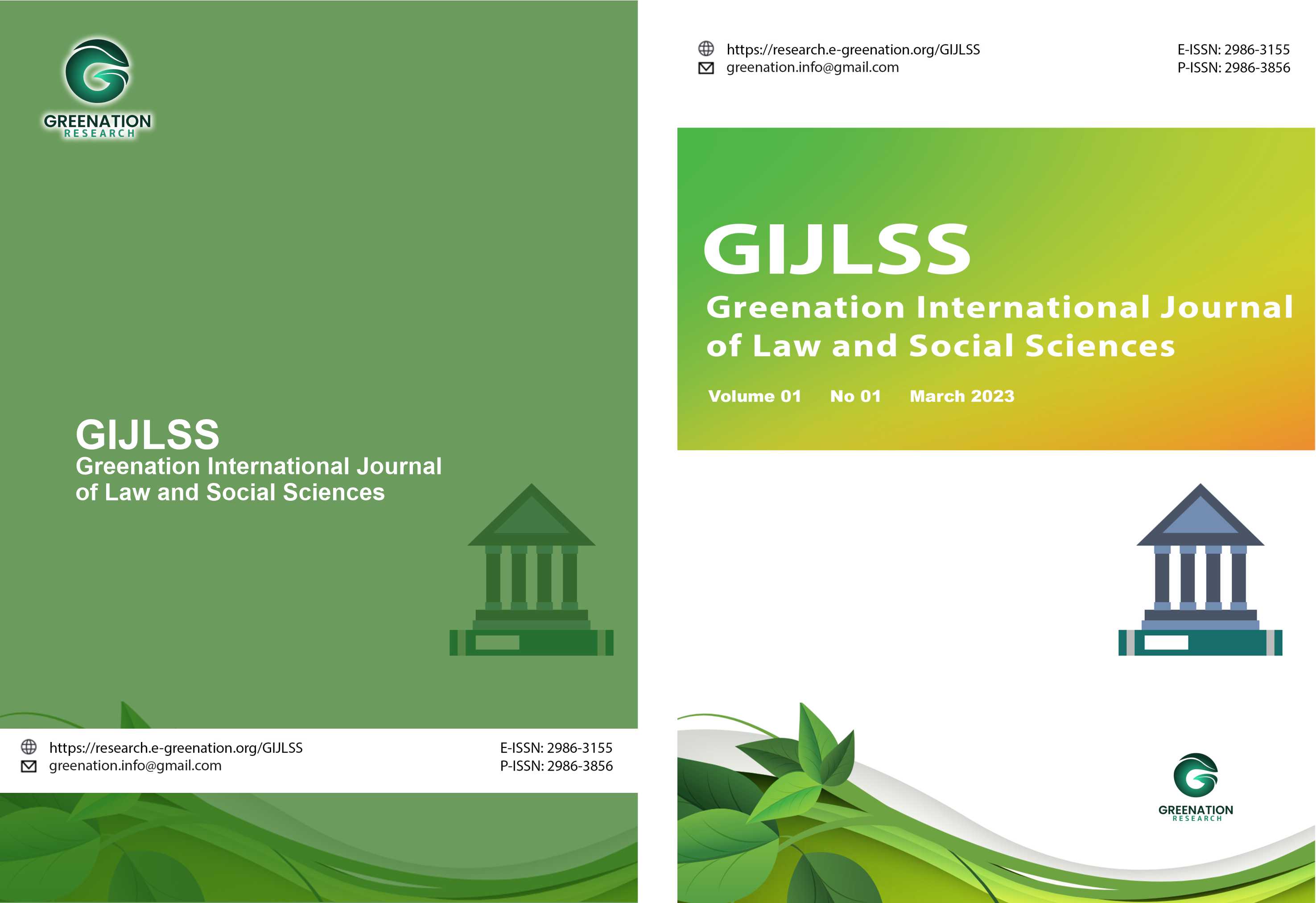Legal Approach in Proving and Providing Sanctions for Sexual Gratification Cases in Indonesia
DOI:
https://doi.org/10.38035/gijlss.v2i4.289Keywords:
Corruption, Sexual Gratification, Indonesian Law, Prevention of Corruption Act, SingaporeAbstract
Corruption is a serious crime that broadly threatens social, economic, and political balance and weakens the legal foundation and ethical values in society. In Indonesia, corrupt practices are increasingly diverse, one of which is gratuities in the form of sexual services, which existing regulations have not fully covered. Although Indonesia's Corruption Eradication Law has regulated various types of gratuities, there are no explicit rules regarding sexual services, creating potential legal uncertainty. In contrast, Singapore through the Prevention of Corruption Act (PCA) has established clear rules related to sexual gratification as a form of offense that can be subject to legal sanctions. Based on this comparison, Indonesia needs more comprehensive regulations related to sexual gratification to deal with increasingly complex modes of corruption so that effectiveness in preventing and eradicating corruption in various sectors can be further enhanced.
References
Afrillia Bella Novita, Alvina Damayanti Riyanto, A Frada Ali H Al Ghifari. (2023). Teori Pembuktian Dalam Sistem Hukum Nasional. Madani: Jurnal Ilmiah Multidisiplin, Volume 1, Nomor 5, Juni 2023
Ali Imron dan Muhamad Iqbal. (2019). Hukum Pembuktian.
Beniharmoni Harefa dan Nurul Bazroh (2022). Pembuktian Gratifikasi Seksual Dalam Pemberantasan Tindak Pidana Korupsi. Jurnal Hukum Pidana & Kriminologi, Volume 03 No. 02.
Clement Hoposdo Ompusunggu dan Diah Ratna Sari Hariyanto. (2021). Gratifikasi Seksual Sebagai Bentuk Tindak Pidana Korupsi. Jurnal Kertha Negara Vol. 9 No. 7.
Doni Muhardiansyah, Aida Ratna Zulaiha, Wahyu Dewantara Susilo, Annisa Nugrahani, Fahrannia Imbrita Rosalba, Bariroh Barid, I Gusti Ayu Nyoman Lia Oktirani. Buku Saku Memahami Gratifikasi.
Djubaeda. (2010). Perzinahan Dalam Peraturan Perundang-Undangan di Indonesia Ditinjau dari Hukum Islam.
Edita Elda. (2021). Korupsi dalam Keadaan Tertentu.
Elitigation. (2024). The High Court Of The Republic Of Singapore. ElitigationSG. https://www.elitigation.sg/gd/s/2024_SGHC_66
Erlita Kresna (2022). Pelayanan Seksual Sebagai Modus Baru Gratifikasi Pejabat Publik. Deviance Jurnal Kriminologi, Edisi 6 No. 1.
Fardiansyah Hasibuan (2021). Sanksi Pelaku Gratifikasi Seksual Dalam Undang-Undang Tipikor dan Perspektif Hukum Pidana Islam. Al-Qanun: Jurnal Kajian Sosial Dan Hukum Islam Vol. 2 No. 1.
Firman Wahyudi. (2019). Pejabat dan Gratifikasi Seks. Badilagmahkamahagung. https://badilag.mahkamahagung.go.id/suara-pembaca-badilag/suara-pembaca/pejabat-dan-gratifikasi-seks-oleh-firman-wahyudi-18-11
Fry Anditya Rahayu Putri Rusadi, Sukinta, Bambang Dwi Baskoro. (2019). Penetapan Gratifikasi Sebagai Tindak Pidana Korupsi Dan Pembuktiannya Dalam Proses Peradilan Pidanana. Diponegoro Law Jurnal Volume 8 Nomor 2.
Hermansyah. (2020). Sistem Pembuktian Pada Tindak Pidana Korupsi Dalam Rangka Pemberantasan Korupsi di Indonesia. UNES Journal Of Swara Justicia Volume 4, Issue 2.
M. Chaerul Risal. (2018). Penerapan Beban Pembuktian Terbalik Dalam Upaya Penanggulangan Tindak Pidana Korupsi. Jurisprudentie Volume 5 Nomor 1.
Mardiana Arsjad. (2018). Gratifikasi Pelayanan Seksual Sebagai Tindak Pidana Korupsi. Jurnal borneo.ac.id,Vol 3.
Novi Christiastuti. (2008). Terima Gratifikasi Seks, Pejabat Imigrasi Singapura Diadili. Detikcom. https://news.detik.com/internasional/d-4231987/terima-gratifikasi-seks-pejabat-imigrasi-singapura-diadili
R. Wiyono. (2008). Pembahasan Undang-Undang Pemberantasan Tindak Pidana Korupsi.
Saeful Akbar. (2016). Gratifikasi Seksual Sebagai Bentuk Tindak Pidana Korupsi. Jurnal IUS Vol. IV Nomor 3.
Downloads
Published
How to Cite
Issue
Section
License
Copyright (c) 2024 Stephanie Christy, Benny Djaja

This work is licensed under a Creative Commons Attribution 4.0 International License.
Copyright :
Authors who publish their manuscripts in this journal agree to the following conditions:
- Copyright in each article belongs to the author.
- The author acknowledges that the Greenation International Journal of Law and Social Sciences (GIJLSS) has the right to be the first to publish under a Creative Commons Attribution 4.0 International license (Attribution 4.0 International CC BY 4.0).
- Authors can submit articles separately, arrange the non-exclusive distribution of manuscripts that have been published in this journal to other versions (for example, sent to the author's institutional repository, publication in a book, etc.), by acknowledging that the manuscript has been published for the first time at GIJLSS.























